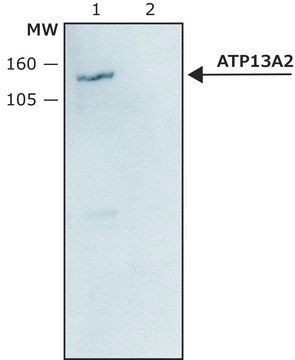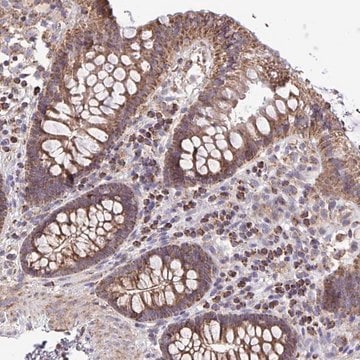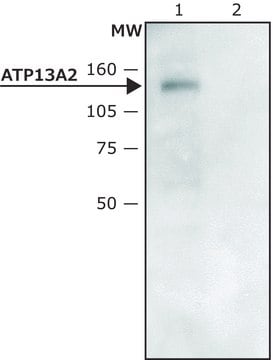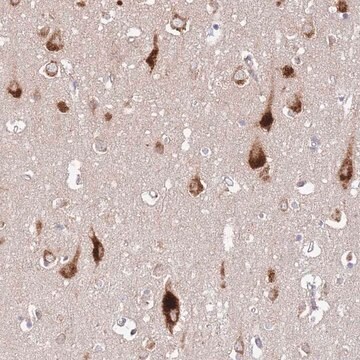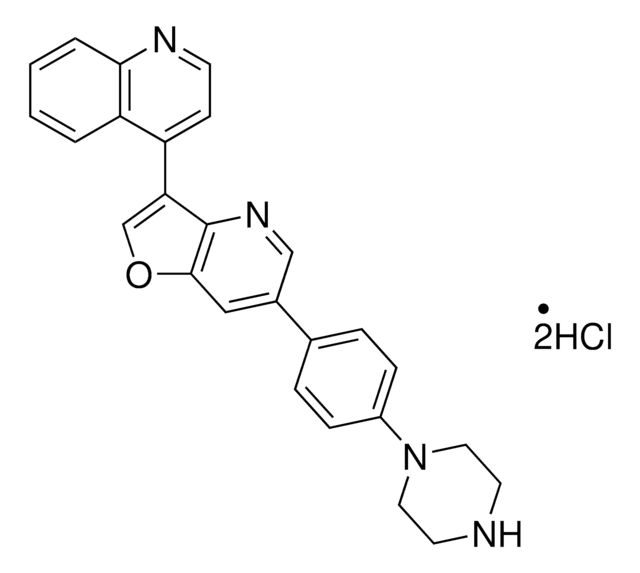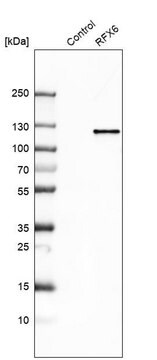A9732
Anti-ATP13A2 (C-terminal) antibody produced in rabbit

~1.5 mg/mL, affinity isolated antibody, buffered aqueous solution
Szinonimák:
Anti-ATPase type 13A2, Anti-PARK9
About This Item
western blot: 2-4 μg/mL using extract of HEK-293T cells expressing human ATP13A2
Javasolt termékek
biológiai forrás
rabbit
Minőségi szint
konjugátum
unconjugated
antitest forma
affinity isolated antibody
antitest terméktípus
primary antibodies
klón
polyclonal
Forma
buffered aqueous solution
molekulatömeg
antigen ~129 kDa
faj reaktivitás
mouse, human
fejlettebb validálás
recombinant expression
Learn more about Antibody Enhanced Validation
koncentráció
~1.5 mg/mL
technika/technikák
western blot: 1-2 μg/mL using mouse brain extract (S1 fraction)
western blot: 2-4 μg/mL using extract of HEK-293T cells expressing human ATP13A2
UniProt elérési szám
kiszállítva
dry ice
tárolási hőmérséklet
−20°C
célzott transzláció utáni módosítás
unmodified
Géninformáció
human ... ATP13A2(23400)
mouse ... Atp13a2(74772)
Általános leírás
Alkalmazás
Biokémiai/fiziológiai hatások
Fizikai forma
Jogi nyilatkozat
Nem találja a megfelelő terméket?
Próbálja ki a Termékválasztó eszköz. eszközt
Tárolási osztály kódja
10 - Combustible liquids
Lobbanási pont (F)
Not applicable
Lobbanási pont (C)
Not applicable
Egyéni védőeszköz
Eyeshields, Gloves, multi-purpose combination respirator cartridge (US)
Válasszon a legfrissebb verziók közül:
Analitikai tanúsítványok (COA)
Nem találja a megfelelő verziót?
Ha egy adott verzióra van szüksége, a tétel- vagy cikkszám alapján rákereshet egy adott tanúsítványra.
Már rendelkezik ezzel a termékkel?
Az Ön által nemrégiben megvásárolt termékekre vonatkozó dokumentumokat a Dokumentumtárban találja.
Tudóscsoportunk valamennyi kutatási területen rendelkezik tapasztalattal, beleértve az élettudományt, az anyagtudományt, a kémiai szintézist, a kromatográfiát, az analitikát és még sok más területet.
Lépjen kapcsolatba a szaktanácsadással